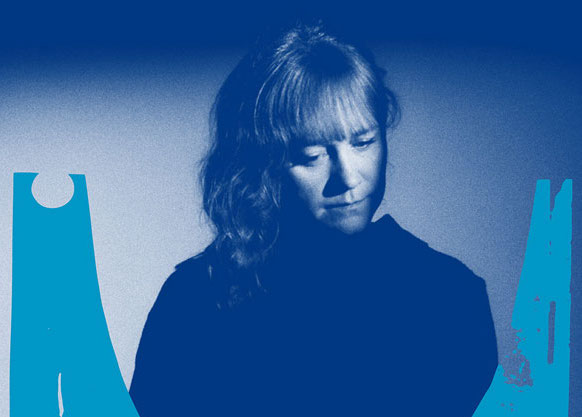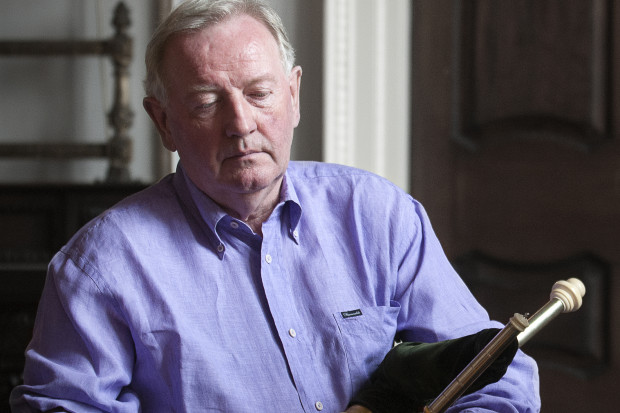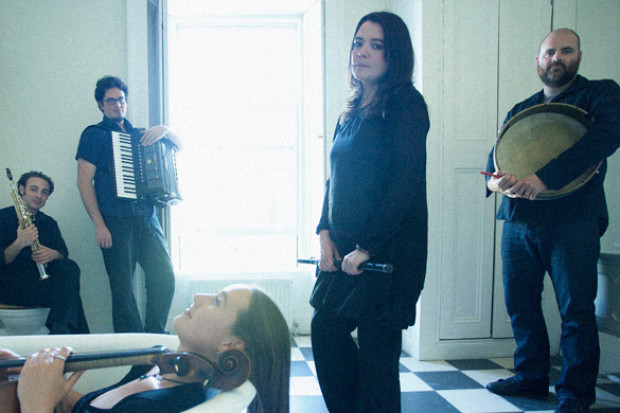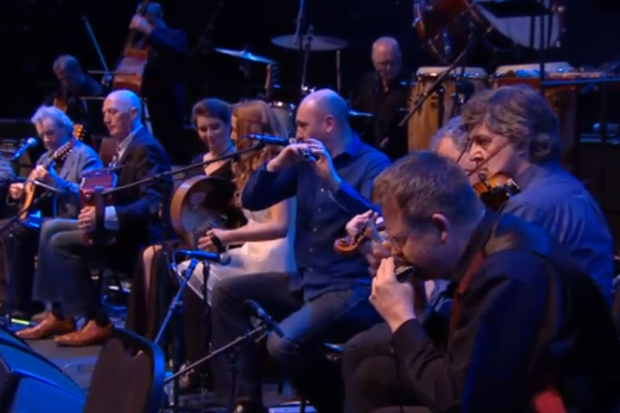
Brigid Mae Power
On Life's Wave
Songwriter Brigid Mae Power makes music that sits at the crossroads between folk and country, flirts with jazz and psychedelic rock, and ties it all together in a wash of reverberated sounds and echoing guitar. Her distinct voice is wave-like, with ornamented vowels and elongated sounds, sometimes without uttering a word.
Her winsome vocals are often paired with unsettled, tumultuous lyrics. Previous albums Brigid Mae Power (2016) and The Two Worlds (2018) have shown her dealing with threatening situations and cautiously treading through the beginnings of a new relationship. Her lyrics are always deeply personal. On ‘Sometimes’ from her debut, we saw a tentative yearning for love and support, ‘Sometimes I… I just want to collapse into you / So as to ground me / Like hugging a tree’. The same sentiment is in ‘I’m Grateful’ from The Two Worlds, ‘I could go on and on and on / About you works / Because I’m grateful, grateful, so grateful’.
With her new album, Head Above the Water, there’s a sense of contentment, a feeling of comfort that seems like new territory for the singer. We hear her debate country life versus city living, she sings of attending a friend’s wedding, and there’s a stunning cover of traditional song ‘The Blacksmith’. The moodier side of her songwriting is still present, but, without sounding twee, there’s a hopeful disposition about this record.
Head Above the Water was released on Fire Records earlier this month and was recorded in Glasgow in a three-day stint, with Scottish folk musician Alasdair Roberts co-producing with composer and musician Peter Broderick. The result is an expansion of the whirling buzz of sound from her past two records.
‘City lights or country skies at night, which do you prefer?’ she asks, on opening track ‘On a City Night’. The use of organ and slide guitar brings to mind Bob Dylan’s Bringing it All Back Home and Highway 61 Revisited, with its smooth and sprawling country-rock tinge. Perhaps it’s the catchy melody, or the old-timey mood, but it launches the album in a way that compels you to keep listening.
Broken chords
Before we get too comfortable, ‘Wearing Red That Eve’ quietly rolls in with slow broken chords on piano, and soon, Power is sombrely singing of an intimidating encounter, ‘that time with the group of men, in New York way back when’. Similarly, in ‘I Was Named After You’, there’s a reflection on a time of struggle that has now passed, ‘I was in a battle, I could neither win or lose / But time has passed and I can freely move’.
Some tracks on the album have the same soft and familiar vintage feel as ‘On a City Night’, such as the more upbeat and buoyant songs ‘Wedding of a Friend’ and ‘We Weren’t Sure’. Others seem to plod along without any real conviction, and blur into the next, like ‘Not Yours to Own’ and ‘You Have a Quiet Power’.
Stripped-back rendition
Tucked almost at the end of the record is a cover of ‘The Blacksmith’, Power’s beautiful and haunting retelling of the traditional Irish folk song made famous by Planxty. This is a stripped-back rendition, initially with just vocals and guitar, later accompanied by Brían Mac Gloinn of Ye Vagabonds on bouzouki and a simple vocal harmony – he appears on most other tracks on the record, also playing fiddle.
Compared to her previous albums, Head Above the Water has the same continuity in style and genre, yet with a progression in terms of songwriting, mood and sound. While the record starts on a high with ‘On a City Night’, it then seems to ebb and flow, and you can get a little lost as a listener. Yet the vulnerability in her songwriting and the hazy, sepia tint make this my favourite record of Power’s yet. The twinkling closing track on piano ‘Head Above the Water’ encapsulates it all, wrapping the album up on the notion that Power is an artist who is now calm, confident, floating.
To purchase Head Above the Water, visit brigidmaepower.bandcamp.com/
Published on 18 June 2020
Shannon McNamee is Assistant Editor of the Journal of Music.

















